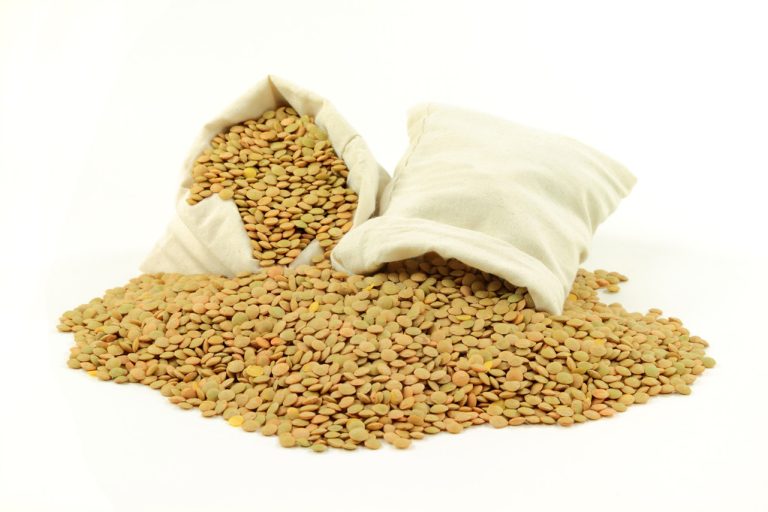Lentils are healthy and are on the menu worldwide. No wonder, legumes are extremely versatile. You can find out here which minerals, vitamins and nutritional values make lentils so healthy.

staple lentils
Lentils come from the Mediterranean region
Why are lentils so healthy?
Lentils are not only a popular kitchen classic because of their versatile preparation options and their filling content. The small round legumes are also real nutrient packages.
Lentils provide high amounts of protein. 100 grams of lentils contain around 10 percent important proteins, as the Federal Center for Nutrition explains. This puts the small seeds, together with other legumes, at the forefront of the most protein-rich plant foods of all. You supply your body with proteins particularly well if you combine lentils with cereals or rice. Both individually do not contain all the essential amino acids, but together they ideally balance this out. Thanks to their high protein content, lentils are an ideal source of protein for vegetarians and vegans. They are also gluten-free and low in fat.
Like all legumes, lentils contain high amounts of B vitamins, which strengthen our nervous system. In addition, they provide vitamin A needed for the immune system and vision, as well as cell-protecting vitamin E.
Lentils are also rich in essential minerals such as potassium, magnesium, iron and calcium. You can make it easier for your body to absorb iron if you supplement the lentils with foods that contain vitamin C, such as spinach, peppers, broccoli or Brussels sprouts.
Studies have shown that a diet with legumes can reduce the risk of coronary heart disease in the long term, lower high LDL cholesterol and high blood pressure and even lead to fat loss, as reported by the online medical journal Ärztezeitung. Lentils should therefore not only be part of a heart-healthy diet.
Thanks to their high fiber content, lentil dishes not only ensure long-lasting satiety, but can also help to improve digestion and possibly even reduce the risk of colon cancer, as Spiegel reports.
Tip – This is how lentils become even more digestible:
Lentils are particularly easy to digest if you soak them before cooking. This also applies to varieties that should not be soaked according to the package insert. Premature salting and seasoning inhibits the lentils from softening. Therefore, only season your lentil dishes towards the end.

sustainability of lenses
Lentils are not only particularly sustainable because of their regional origin. They are also very adaptable, grow almost anywhere and don’t even need fertilizer for a bounty harvest. Biologically, growing lentils is also beneficial for bees, bumblebees and butterflies. Their flowers provide valuable food for endangered beneficial insects, as GEO reports online.
Since the small, inexpensive legumes can be easily preserved or dried, they are available all year round and can easily be stored in stock.

